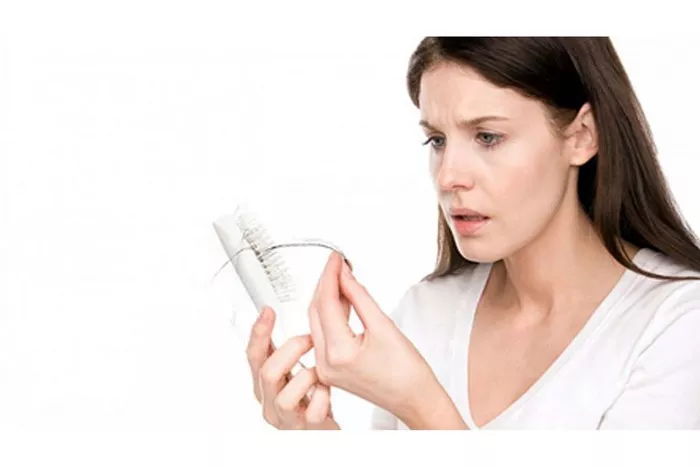Swimming is a popular and enjoyable form of exercise, offering a range of health benefits. However, concerns have arisen about the potential impact of swimming, particularly in chlorinated pools, on hair health. In this article, we will explore the relationship between swimming and hair loss, examining the factors at play and offering insights into maintaining healthy hair while enjoying this aquatic activity.
Understanding the Impact of Chlorine on Hair
Chlorine is a common disinfectant used in swimming pools to eliminate harmful bacteria and maintain water cleanliness. While crucial for water safety, the frequent exposure to chlorine can have adverse effects on the hair. Chlorine strips away the natural oils that protect the hair shaft, leaving it vulnerable to damage.
Dryness and Breakage
One of the primary concerns associated with chlorine exposure is the drying effect it has on the hair. As chlorine removes the natural oils that keep the hair moisturized, it can lead to dryness, brittleness, and increased susceptibility to breakage. Over time, this can contribute to the appearance of damaged and frayed hair ends.
Color-Treated Hair and Chlorine
For individuals with color-treated hair, the impact of chlorine can be even more significant. Chlorine has the potential to strip away hair dye, causing color fading and alterations. Additionally, the combination of chlorine and certain hair dyes may lead to undesired changes in hair color, such as a greenish tint.
Can Chlorine Cause Hair Loss?
The question of whether chlorine can directly cause hair loss is a topic of debate. While chlorine itself may not be a direct cause of hair loss, the damage it inflicts on the hair shaft can contribute to conditions that may lead to hair thinning or loss over time.
Repeated exposure to chlorine can weaken the hair, making it more prone to breakage. This breakage, if severe, can create the appearance of thinning hair. However, it’s essential to distinguish between hair breakage and actual hair loss, which involves the shedding of hair from the root.
Protective Measures for Healthy Hair
While enjoying a swim, whether in a chlorinated pool or other aquatic environments, it’s possible to take measures to minimize the potential impact on hair health.
Wet Your Hair Before Swimming: Before entering the pool, wet your hair with clean, non-chlorinated water. This helps reduce the absorption of chlorinated water into the hair shaft, providing a protective barrier.
Use a Swim Cap: Wearing a swim cap can be an effective way to shield your hair from direct contact with chlorinated water. Choose a cap made from silicone or latex for optimal protection.
Rinse Immediately After Swimming: After your swim, rinse your hair thoroughly with clean water. This helps remove chlorine and other chemicals that may have accumulated on the hair.
Use a Protective Leave-In Conditioner: Applying a leave-in conditioner before swimming can create an additional barrier against chlorine damage. Look for products specifically designed for swimmers that help moisturize and protect the hair.
Limit Chlorine Exposure: Consider limiting the frequency and duration of your exposure to chlorinated water. If possible, alternate swimming in chlorinated pools with other forms of exercise or water activities.
Maintaining a Healthy Hair-Care Routine
To counteract the potential effects of swimming on hair health, it’s crucial to establish a consistent and effective hair-care routine.
Moisturize Regularly: Keep your hair well-hydrated by using moisturizing shampoos and conditioners. Consider incorporating deep conditioning treatments to nourish and repair the hair.
Trim Your Hair Regularly: Regular trims help prevent split ends and breakage, promoting overall hair health. If you notice signs of damage, consult with a professional stylist for a trim to maintain the integrity of your hair.
Choose Gentle Hair Products: Opt for hair products that are free from harsh chemicals and sulfates. These products are gentler on the hair and less likely to exacerbate any damage caused by chlorine exposure.
Stay Hydrated and Maintain a Balanced Diet: Adequate hydration and a nutrient-rich diet contribute to overall hair health. Drinking plenty of water and consuming a balanced diet with essential vitamins and minerals support the strength and vitality of your hair.
See Also: How To Stimulate Your Scalp For Hair Growth: A Quick Guide
Conclusion
In conclusion, while swimming, especially in chlorinated pools, can have an impact on hair health, it’s essential to approach the activity with a proactive mindset. Taking protective measures, such as wetting your hair before swimming, using a swim cap, and rinsing thoroughly afterward, can help minimize potential damage. Additionally, maintaining a consistent and nourishing hair-care routine is crucial for counteracting the effects of chlorine exposure and promoting overall hair health. By combining these strategies, you can continue to enjoy the benefits of swimming while prioritizing the well-being of your hair.


